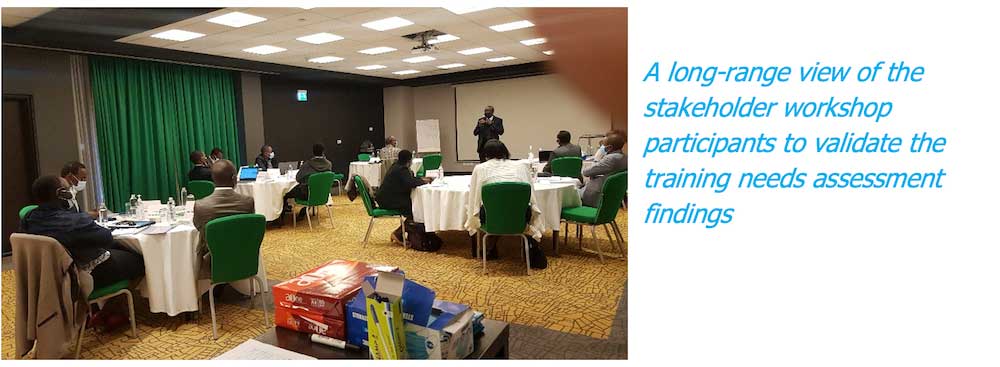
In Year 1 of the One Health Workforce Next Generation (OHW-NG) project, AFROHUN-Kenya conducted a One Health training needs assessment (TNA) for frontline workers in Kenya, including Community Health Workers (and/or Community Health Extension Workers) and Agricultural Extension Workers, among others. AFROHUN Kenya aims to engage the frontline workers in One Health responses to emerging issues, thereby improving communication and collaboration across the sectors. The needs assessment, therefore, focused on identifying gaps in knowledge, attitudes and practices, and One Health competencies of the frontline workers. The aim is to design training programs based on the gaps identified through the needs assessment in subsequent years, eventually enhancing the capacity of frontline community workers to prevent, detect and respond to One Health issues in the community.
In Year 2 of the project, a stakeholder workshop was convened where the TNA report was presented to stakeholders and existing training materials reviewed to determine the extent to which they meet the identified training needs and gaps. Among other things, the workshop provided opportunity to explore areas of synergy with organizations that have programs which may address gaps identified in the Training Needs Assessment, including FAO’s ISAVET program.
The needs assessment had three main objectives: 1) to ascertain the needs and One Health competency gaps prioritized by healthcare workers, 2) to identify gaps in One Health knowledge, attitudes and practices among Frontline Workers in Kenya, 3) to determine needs that are not being addressed by existing training programs for frontline workers.
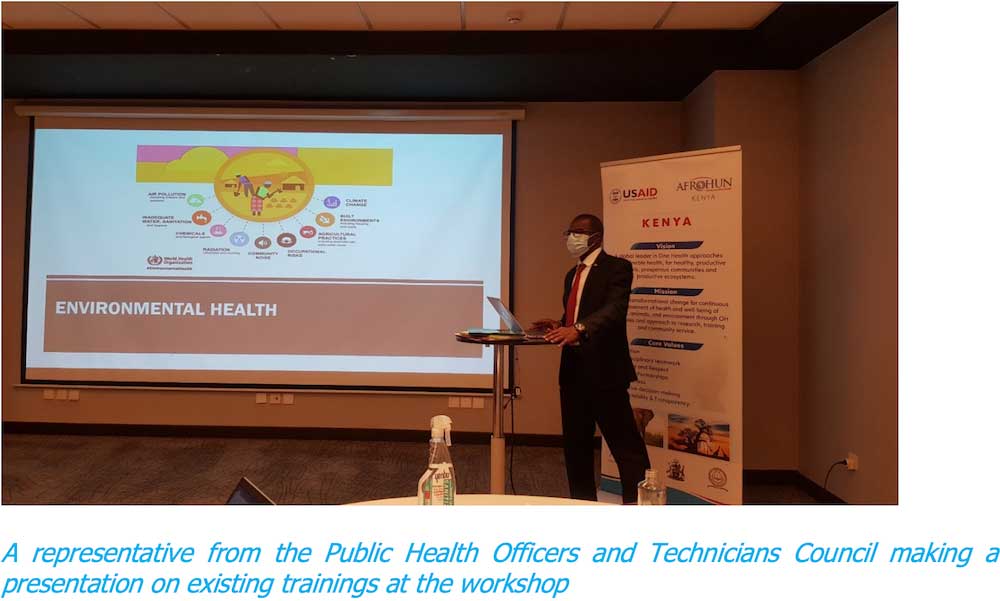
The assessment utilized a multidimensional framework to explore health workforce needs at individual, institutional and contextual levels. A literature review was done to examine previous assessments conducted for the health workforce and other sector workforces with a focus on cross-sectoral themes.
The assessment survey was administered to and completed by frontline workers in environmental, animal, and human health with the human health sector having the most respondents. The assessment measured employee satisfaction and engagement and examined workplace environment among other aspects.
The organizations that attended the stakeholder workshop held in July 2021, included AFROHUN Kenya office and member institutions, East African Community (EAC) Secretariat, Kenya Red Cross Society (KCRS), Food and Agriculture Organization (FAO), Institute of Primate Research (IPR), Medicines Technologies and Pharmaceuticals Services (MTAPS), Core Group, Public Health Officers and Technicians Council (PHOTC), Environmental Institute of Kenya (EIK), Kenya Veterinary Board (KVB), and Maasai Mara University.
The workshop discussions deepened stakeholders’ understanding of the assessment findings. Stakeholders agreed that there was enhanced understanding of One Health among stakeholders with more entities and actors engaging in One Health activities, beyond universities that were initially the main actors. The One Health competencies that were prioritized by health workers in the assessment survey, include: management, communication, culture, belief and gender, leadership, collaboration and partnership, values and ethics, systems thinking, policy, advocacy, and research.
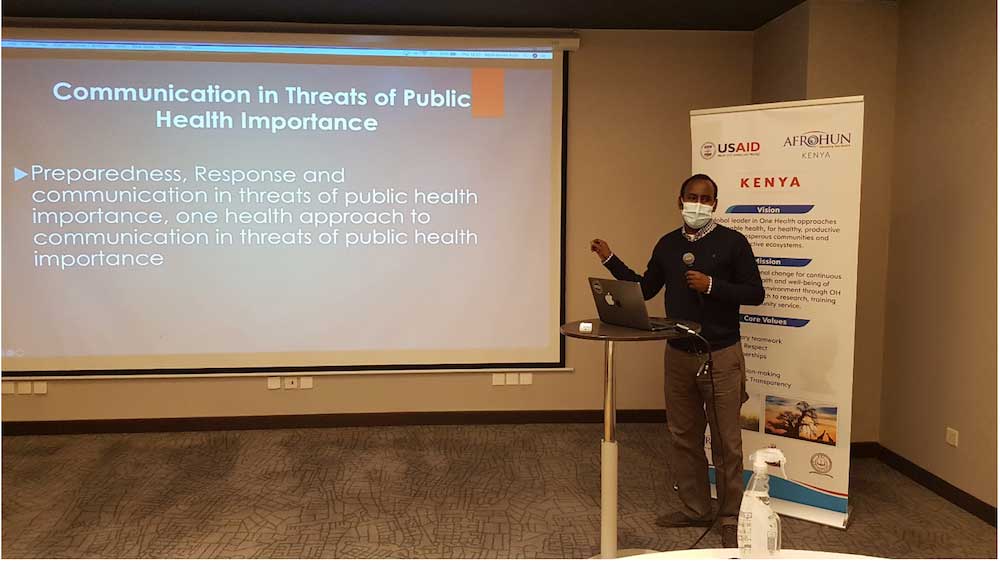
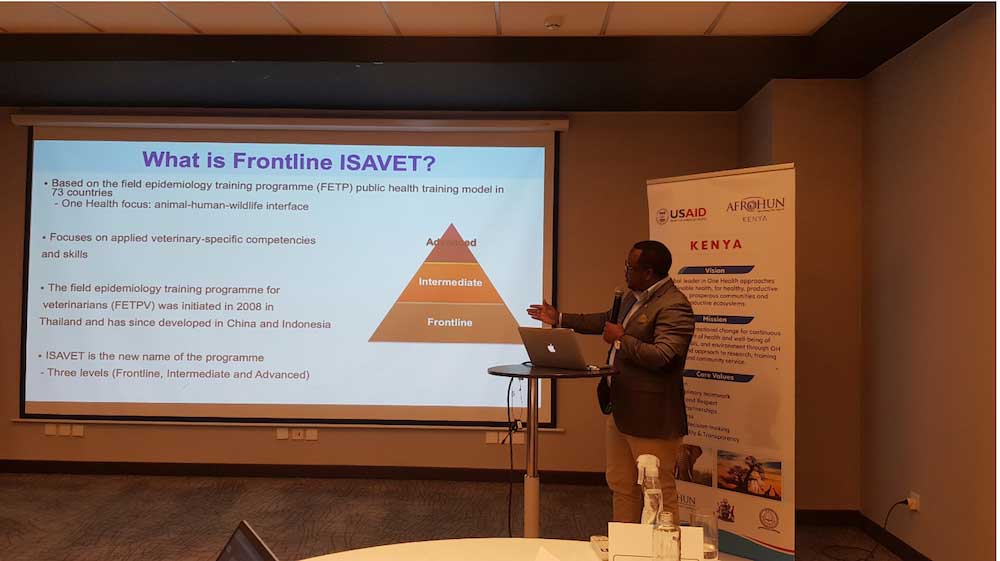
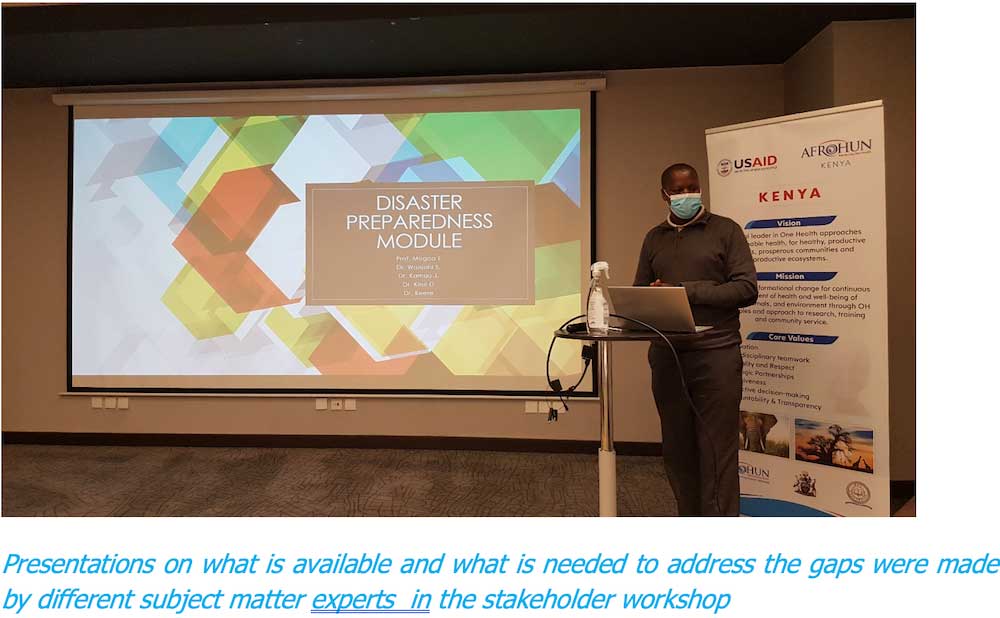
The training needs that were identified include: communication, use of digital technologies, provision and use of personal protective equipment, prevention, preparedness and response mechanisms, community engagement, networking, and collaboration among various sectors, especially during pandemics.
The assessment findings further revealed that the identified training needs were brought out more starkly by the effects of the COVID-19 pandemic on the work environment. On the plus side, this prompted many organizations and individuals to adopt digital technologies to ensure continuity of their work and operations. During the COVID-19 pandemic, healthcare workers have experienced many challenges that have adversely affected effective delivery of essential services.
The assessment also identified the need to ensure adequate collaboration among stakeholders to improve preparedness and response which has been a key challenge globally.
The stakeholders in the workshops agreed that there was urgent need to develop a course to address the identified gaps. Such a course would also take care of the contemporary needs frontline health workers have, to be effective in, service delivery during threats of public health importance.
Subsequently, the need to identify areas of synergy took center stage to maximize each partner’s potential in delivery of the different modules of the course. Stakeholders discussed the availability of existing training materials, infrastructure in various organizations and recognition by professional bodies on the need to incorporate the course into curricula and award of continuous professional development points (CPDs) to their members.
The output from the workshop was the plan for the development of training modules that would be piloted first before scaling them up, to cover more frontline health workers. The topics were identified and content for each of the modules would be adopted from the existing AFROHUN modules. Three new modules were also identified to be incorporated into the short course. These were: 1) One Health Approach to Pandemic Preparedness and Management, 2) Digital Communication Tools and Applications, and 3) Psychosocial Support.
The stakeholders affirmed their support to this way forward and provided great input into the proposed modules and training course. They committed to provide support through their respective experts.
Following the engagement, Kenya Veterinary Board (KVB) members were awarded 5CPD points from the workshop. This was based on two reasons. Firstly, because of their active involvement in the stakeholder workshop. Secondly, one of their representatives gave an assurance of their commitment to the partnership and engagement.
In Year 3 of the One Health Workforce – Next Generation project, AFROHUN Kenya will embark on finalizing training programs and organizing events to address the needs identified.
